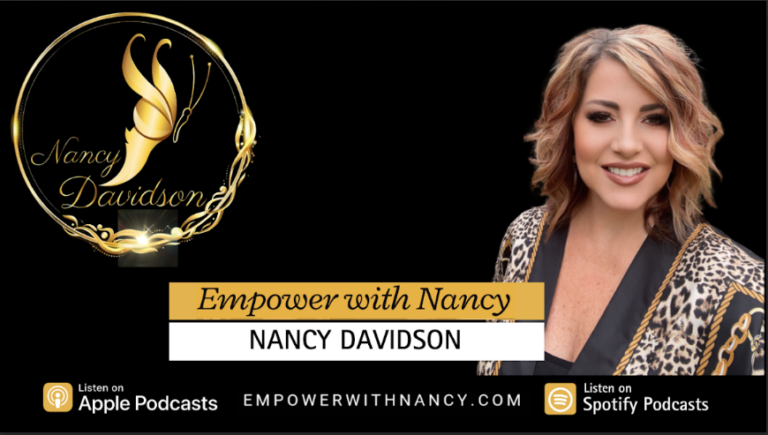The Power of Self-Compassion: Nurturing Personal Growth and Empowerment
In today’s fast-paced world, we often prioritize achievement, success, and resilience above all else. While these pursuits are essential, we must not overlook the importance of self-compassion in fostering personal growth and empowerment. At its core, self-compassion entails treating ourselves with the same kindness, understanding, and care that we would offer a close friend or loved one. It means acknowledging our inherent worth, recognizing the challenges we face, and allowing ourselves to be vulnerable without succumbing to self-judgment or criticism.
Self-compassion is not only a powerful antidote to stress, anxiety, and negative self-talk, but it is also a catalyst for self-improvement and resilience. By practicing self-compassion, we can cultivate a healthier relationship with ourselves, becoming more receptive to personal growth and improvement. As a result, we are better equipped to handle life’s challenges, embrace our imperfections, and move forward gracefully through both triumphs and setbacks.
Unfortunately, self-compassion often takes a backseat in our lives as we prioritize external validation, achievement, and self-improvement. This approach can lead to an endless cycle of self-criticism, perfectionism, and dissatisfaction, impeding our journey to personal growth and empowerment. To break free from this cycle and unlock our full potential, it is crucial to understand the importance of self-compassion, identify and challenge common misconceptions, and develop strategies for cultivating self-compassion in our daily lives.
In this article, we will explore the concept of self-compassion, discuss the barriers that prevent its practice, and provide practical strategies for nurturing self-compassion. Additionally, we will examine the positive impact of self-compassion on our mental and emotional well-being and how a self-empowerment coach can support you in fostering self-compassion and unlocking your full potential.
The Concept of Self-Compassion: Understanding Its Importance in Personal Growth
Self-compassion encompasses three primary components: self-kindness, common humanity, and mindfulness. Combined, these elements create a compassionate and empathetic internal environment that supports personal growth and resilience.
- Self-kindness: The act of treating ourselves with warmth, understanding, and care rather than harsh judgment or criticism.
- Common humanity: The recognition that every individual faces challenges and struggles, fostering a sense of connection and empathy with others.
- Mindfulness: The ability to acknowledge our thoughts, feelings, and experiences without judgment, enabling us to maintain perspective and self-compassion during difficult times.
Cultivating self-compassion is essential for overall well-being, personal growth, and continuous improvement. By replacing self-criticism with kindness and understanding, we empower ourselves to embrace our imperfections, face adversity with resilience, and work towards our goals with greater self-awareness and emotional intelligence.
Common Misconceptions and Barriers to Practicing Self-Compassion
Several misconceptions and barriers can hinder our ability to practice self-compassion effectively. Identifying and challenging these barriers is key to fostering a compassionate attitude toward ourselves.
- Confusing self-compassion with self-indulgence: Many worry that self-compassion may result in leniency or self-centeredness. In reality, self-compassion encourages healthy self-assessment and growth while avoiding the pitfalls of self-criticism and guilt.
- Assuming self-compassion leads to complacency: Contrary to this belief, self-compassion fosters motivation and the resilience necessary to pursue our goals with patience and perseverance.
- Believing that self-compassion signifies weakness: Practicing self-compassion requires tremendous courage, as it involves embracing vulnerability and confronting our innermost thoughts and feelings.
Strategies for Cultivating Self-Compassion in Daily Life
Developing self-compassion takes time, effort, and intention. Consider the following strategies to integrate self-compassion into your daily routine:
- Start with self-awareness: Begin by acknowledging your emotions and thoughts, fostering mindfulness and self-reflection.
- Use self-compassionate language: Replace self-critical thoughts with kind and supportive self-talk, as if speaking to a close friend.
- Practice self-forgiveness: Accept that everyone makes mistakes, and use these incidents as opportunities for growth and learning.
- Set healthy boundaries: Prioritize your well-being by establishing and maintaining boundaries in various aspects of your life, such as work, relationships, and personal time.
- Engage in self-care rituals: Dedicate time and effort to activities that promote relaxation, happiness, and mental well-being.
The Positive Effects of Self-Compassion on Mental and Emotional Well-being
Embracing self-compassion can yield a multitude of benefits for our mental and emotional well-being, including the following:
- Reduced stress and anxiety: By accepting our imperfections and treating ourselves with compassion, we can alleviate the stress and anxiety resulting from unrealistic expectations and self-criticism.
- Enhanced resilience: Self-compassion provides a solid foundation for facing challenges, bouncing back from setbacks, and navigating adversity with grace.
- Improved self-confidence: By acknowledging our worth and capabilities, self-compassion fosters self-assurance and confidence in our potential.
- Heightened emotional intelligence: Self-compassionate individuals possess greater self-awareness and empathy, promoting stronger relationships and more effective communication.
The Role of a Self-Empowerment Coach in Fostering Self-Compassion
Working with a self-empowerment coach can significantly enhance your ability to develop self-compassion. Here’s how a coach can support your journey:
- Personalized guidance: A coach can help you identify your unique barriers to self-compassion and offer tailored strategies to overcome them.
- Expert insights: With their extensive understanding of self-compassion, coaches can provide tried-and-tested techniques for developing this essential skill.
- Accountability and motivation: Coaches can help maintain momentum and motivation as you work towards cultivating self-compassion as a habit.
- Emotional support: A self-empowerment coach provides a safe, non-judgmental space to explore emotions and navigate the complexities of self-compassion.
Conclusion:
Embracing self-compassion is crucial for personal growth and empowerment. By understanding the importance of this practice and integrating it into our daily lives, we can foster resilience, self-confidence, and well-being. Enlisting the support of a self-empowerment coach can offer valuable guidance, insights, and encouragement throughout your self-compassion journey.
Self-empowerment Coach Nancy Davidson is here to help you overcome life’s challenges and achieve your big goals. With 25 years of experience in business management, she has the knowledge and expertise to guide you toward success. Don’t let life’s obstacles hold you back any longer. Book an appointment to begin your path to personal growth fueled by the power of self-compassion.







